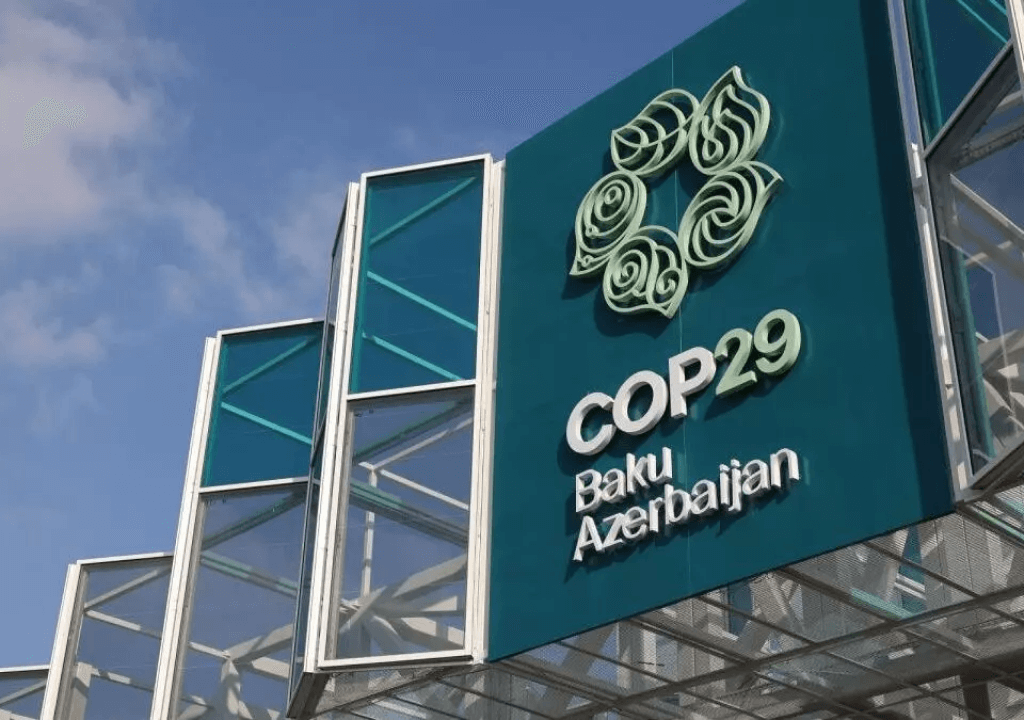The Politics of Climate Conference

There are no longer any doubts about climate change, as its effects are evident to everyone. People’s suffering continues to grow, but climate spending and the politics surrounding it have caused significant division. The global right-wing and those burdened by rising living costs protest the expenses tied to climate initiatives, while the global left and climate activists demand more funding for climate action. As this polarization grows, the United Nations held its annual Climate Change Conference, COP29, in Azerbaijan, a country made up of oil. The conference took place in Baku from November 11 to 22, 2024.
Unlike previous years, the event failed to generate significant attention. Despite the Azerbaijani government investing substantial oil revenues in PR campaigns, international media provided minimal coverage. The conference lost the global focus it once enjoyed, though it sparked some interesting controversies. The controversy began with the choice of hosts. Last year, Dubai—a wealthy, oil-rich desert hub—hosted the conference. This year, the decision to hold COP29 in Azerbaijan raised eyebrows once again. Azerbaijan, a major oil and gas producer, is also known for its authoritarian governance and widespread corruption. Adding to the controversy, Mukhtar Babayev, a longtime official with Azerbaijan’s state-owned oil company SOCAR, served as the president of COP29. These contradictions are glaring, much like LGBTQ+ advocates supporting Muslim rights. The peak of these ironies fuels doubts among the public and erodes trust in global climate efforts. Many accuse these actions of greenwashing, with little positive impact on the climate. Countries and businesses use climate change as a means to generate public opinion, much like how sports-washing works.
COP29 Chief Executive Elnur Soltanov was secretly recorded discussing potential oil and gas deals during the conference, raising serious concerns about the need for such high-cost events. And EU diplomats criticized Azerbaijan for excluding fossil fuel phase-out from the conference agenda, which focused solely on mitigation. These events led Papua New Guinea’s Minister of Foreign Affairs, Justin Tkatchenko, to announce a boycott of the summit, calling it a total waste of time.
Discussions largely focused on climate-related finances. A key agenda item was negotiating the New Collective Quantified Goal (NCQG) on climate finance, which sought to establish a new financial target to support developing nations after 2025, building on the previous $100 billion annual commitment. Proposed solutions included blended finance, which combines public and private investments to boost funding for climate initiatives, and debt-for-nature swaps, allowing countries to redirect debt repayments toward environmental and climate projects. COP29 encouraged global financial institutions and the private sector to increase climate finance and invest in green innovation.
Delegates also agreed on rules and established a UN registry to facilitate and track international carbon credit trading. Key points of tension in the negotiations involved the donor base. Developed economies, such as the US and the European Union, argued that resource-rich countries like China and Gulf Cooperation Council nations should automatically contribute. Another point of contention was the share of funding coming from public budgets, with developing countries demanding significant increases in public, non-loan grants. The final $300 billion climate finance agreement stipulates that both public and private sources will provide funding and encourages voluntary contributions from developing countries, including China and Middle Eastern nations.
The next COP, set to take place in Brazil in 2025, is expected to witness more intense political friction. The United States will have a new president, one who has shown little interest in climate-related issues. This shift could influence major countries, particularly in Europe, where there is significant opposition to spending large amounts of money on climate initiatives. The rise of right-wing movements and the weakening of climate-focused green parties in Europe may further undermine pledges, as they may not come to fruition. Meanwhile, China and India, the world’s growing economies, are unlikely to bear the burden even though they find clear opportunities in the process. As a result, the climate will continue to heat up.
No comments:
Post a Comment